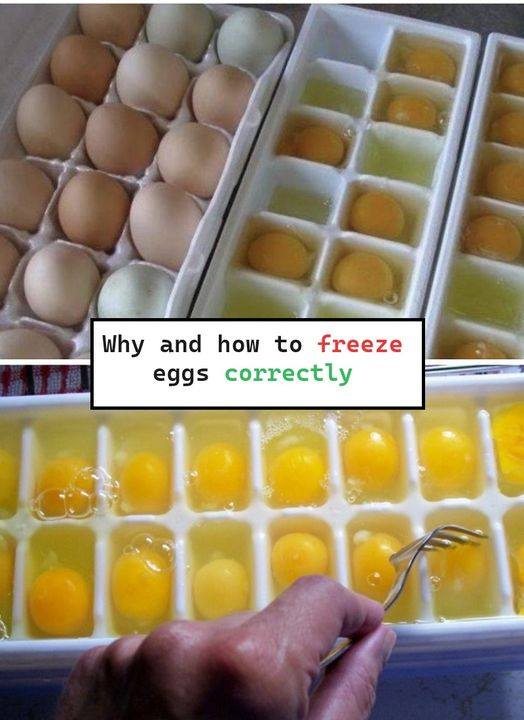ADVERTISEMENT
Why and How to Freeze Eggs Correctly: A Handy Guide for Housewives
Eggs are a kitchen staple—whether you’re scrambling them for breakfast, baking them into cakes, or using them in savory dishes. But sometimes, we find ourselves with extra eggs that are about to expire, or perhaps we’ve bought a bulk carton at a great price and need to store them for later. Freezing eggs can be a game-changer, but there’s a right way to do it. Freezing eggs the wrong way can result in changes in texture, flavor, and even make them unsafe to eat. That’s why knowing why and how to freeze eggs correctly is essential.
If you’ve ever wondered whether it’s possible to store eggs in the freezer, the answer is yes! But there are important things to know about the freezing process to maintain their quality and ensure you’re not wasting food. In this article, we’ll cover why freezing eggs is a great idea, how to freeze them properly, and how to use them later in your cooking and baking.
Why Freeze Eggs?
There are several reasons you might want to freeze eggs:
- Reduce Food Waste: Eggs have a relatively short shelf life, especially if you buy them in bulk. Freezing extra eggs before they spoil is a great way to reduce waste and extend their usability.
- Stock Up on Sales: If you find eggs on sale, freezing them is a fantastic way to take advantage of a good deal. This can save you money in the long run, especially if you use a lot of eggs in your cooking and baking.
- Space and Convenience: Freezing eggs allows you to keep a supply on hand without taking up too much space in your fridge. You can also have pre-portioned eggs ready to use in recipes when you’re in a rush.
- Meal Prep: For those who like to prepare meals in advance, having frozen eggs on hand can save time and effort. Whether you need eggs for a breakfast scramble or a batch of cookies, they’re ready whenever you are.
- For Cooking and Baking: Freezing eggs is especially useful for baking. Often, recipes call for egg yolks or egg whites separately, and freezing eggs allows you to store them in specific portions for later use.
How to Freeze Eggs Correctly
Freezing eggs is not as simple as just cracking them into an ice cube tray and putting them in the freezer. To preserve their quality, it’s important to follow specific steps. Here’s how to freeze eggs the right way:
Step 1: Decide Whether to Freeze Whole Eggs or Egg Parts
You can freeze eggs in a few different forms, depending on your needs:
- Whole Eggs: If you want to freeze eggs as they are, simply crack them into a bowl. Beat the eggs lightly with a fork or whisk to combine the yolk and white, making sure they are well blended. This helps maintain the texture when thawing.
- Egg Whites: If you plan to use just the egg whites (for meringues, angel food cakes, etc.), crack the eggs and separate the whites from the yolks. Be sure to discard or store the yolks separately.
- Egg Yolks: If you need to freeze just the egg yolks, beat them lightly before freezing. Yolks tend to become thicker and gel-like when frozen, so adding a small amount of salt or sugar (depending on whether you plan to use them for savory or sweet recipes) can help prevent this.
Step 2: Portion the Eggs
Once you’ve decided whether to freeze whole eggs, egg whites, or egg yolks, it’s time to portion them for easy use later. Here’s how:
For Complete Cooking STEPS Please Head On Over To Next Page Or Open button (>) and don’t forget to SHARE with your Facebook friends
ADVERTISEMENT
